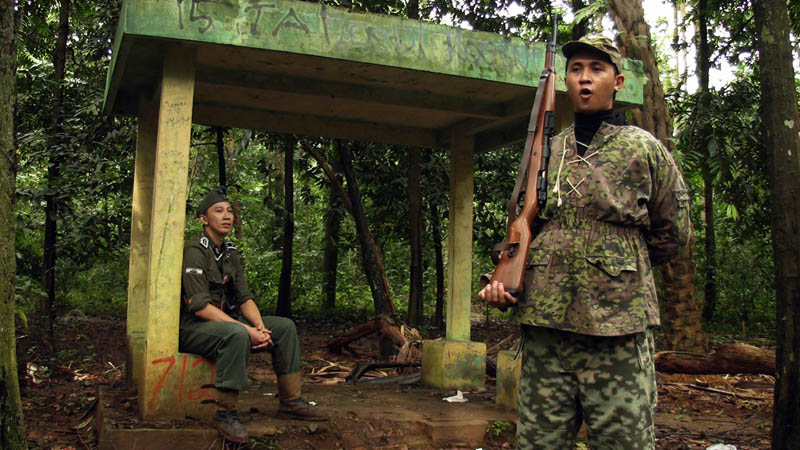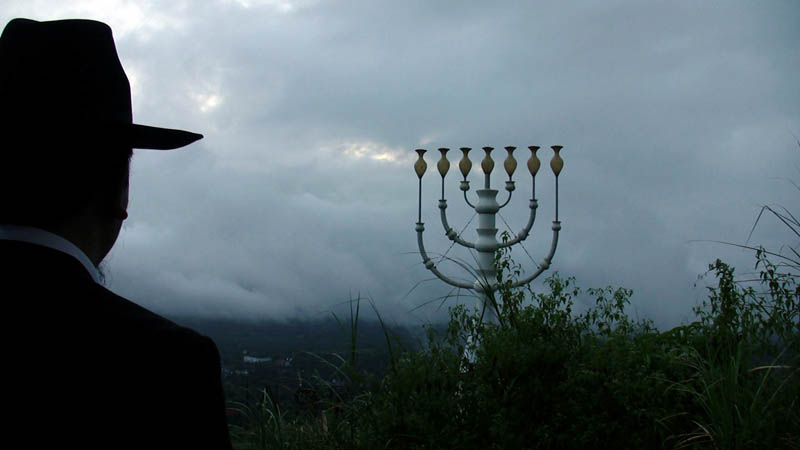
ABOUT THE EMPIRE PROJECT
Empire is an ongoing new media and educational outreach project created by the Dutch-American filmmaking team Eline Jongsma and Kel O’Neill. The project examines the architectural, cultural and spiritual traces left behind by Dutch East India Company traders and colonists in five former VOC trading posts and colonies: Sri Lanka, Indonesia, India, Ghana and South Africa. The five multichannel, nonfiction video works that make up the core of the project are intimate, first-person portraits of people and communities whose lives are still in various ways defined by the Dutch colonial endeavor.
Empire was conceived as a way to look at the present through the lens of the past. Since the VOC’s groundbreaking colonial-capitalist adventure, multinational corporations have become the unofficial governing bodies of our time. They determine prices and dispense employment. They guide our culture and pollute our backyards. They are so integral to our existence that it is difficult to imagine how we would organize our lives without them. The contemporary, personal stories that make up the Empire project investigate the unintended consequences of early corporatism on colonized populations, while also examining the waning influence of Western power in the East. The project is, above all else, an examination of the continuing repercussions of European intervention abroad. All works in the Empire project are created and exhibited in collaboration with local artists and arts organizations. The project is supported by Fonds BKVB (The Netherlands Foundation for Visual Arts, Design and Architecture). The video installation produced in Indonesia, Empire: 5º00’ N, 120º00’E, is also supported The Mondriaan Foundation, and presented in collaboration with House of Natural Fiber (HONF).
ABOUT EMPIRE: 5º00’ N, 120º00’E
Empire’s second video installation, Empire: 5º00’ N, 120º00’E, was filmed on location in Manado, Sulawesi and Cibubur, Java. Empire: 5º00’ N, 120º00’E tells the stories of two men on a mission. They don’t know each other and their stories never meet, but their identities are deeply intertwined with the Dutch interference in Indonesia. On one side, Permadi is a member of the World War II re enactor group called “Niederlande Kampfgruppe”. On weekends, he and his group dress up in the uniforms of the Waffen SS. Their efforts are rooted in history; according to Permadi and his friends, about 20 Dutch-Indonesians living in occupied Holland signed up to join the Waffen SS in the 1940’s.
On the other side is Yaakov. He grew up in Manado, born of Dutch-Indonesian parents. A few years ago, he found out that his family’s religious background was not Christian, but Jewish. Since then, he has embraced the Jewish faith wholeheartedly, and has put all of his efforts into fostering a small Jewish community in Manado. Judaism is not a state recognized religion in Indonesia, so Yaakov’s beliefs and practices put him in great danger.
While Empire confronts large themes, it does so by telling personal stories. The focus is on building a compelling set of human characters, each one a personification of a different aspect of the post-colonial experience.

| Attachment | Size |
|---|---|
| jongsma.jpg | 123.84 KB |
| jongsma1.jpg | 48.77 KB |